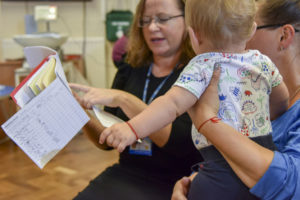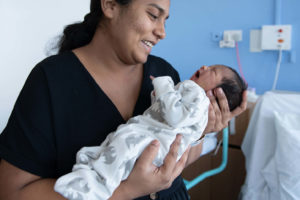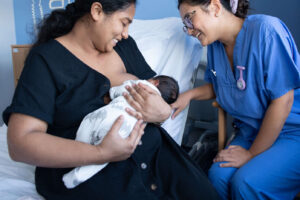Support for parents
Resources and information for parents to support with feeding and developing close and loving relationships with their baby.
 page. Support for parents
page. Support for parents
Resources and information for parents to support with feeding and developing close and loving relationships with their baby.
 page. Support for parents
page. Support for parents
These studies explore the wide-reaching consequences of infant feeding choices, particularly the impact of breastfeeding on child health.
 page. Infant health research: Meta-Analyses
page. Infant health research: Meta-Analyses
These resources support staff when talking to mothers about feeding and caring for their baby, during pregnancy and in the postnatal period.
 page. Guidance for antenatal and postnatal conversations
page. Guidance for antenatal and postnatal conversations
Findings from the Becoming Breastfeeding-Friendly process in Scotland highlight positive policy for infant feeding, including Baby Friendly.
 post. Becoming Breastfeeding Friendly in Scotland
post. Becoming Breastfeeding Friendly in Scotland
The Baby Friendly pages on infant feeding and relationship building for the PCHR (or Red Book) are available for download and printing.
 page. Baby Friendly pages for the PCHR (Red Book)
page. Baby Friendly pages for the PCHR (Red Book)
We are pleased to re-introduce UNICEF UK Baby Friendly Audit Workshops due to a number of requests from infant feeding leads across the UK.
 page. Audit Workshop
page. Audit Workshop
Becoming Breastfeeding Friendly describes the UNICEF UK Baby Friendly Initiative as a 'key driver' in infant feeding support and training.
 post. Becoming Breastfeeding Friendly in England
post. Becoming Breastfeeding Friendly in England
This Baby Friendly course has undergone a refresh to include the latest emerging evidence around infant feeding.
 page. Breastfeeding and Relationship Building Course – Health Professionals
page. Breastfeeding and Relationship Building Course – Health Professionals
These infosheets are available in multiple languages and can be used to support parents with feeding and responding to their baby.
 page. Foreign language resources
page. Foreign language resources
Our learning outcomes for children's nursing students are intended to set a standard for the level of knowledge and understanding of infant feeding that could be reasonably expected of a newly qualified doctor.
 page. Learning outcomes for children’s nursing students
page. Learning outcomes for children’s nursing students